Can You Drink on Plant Based Diet
Okay, let me start by answering the question directly, is alcohol vegan?
Yes, however, for wine and beer, many companies use animal products as fining agents including fish bladders, egg whites, gelatine and skim milk. All hard liquors are vegan-friendly as well as most distilled spirits except for the cream-based liquors—as they have dairy—or drinks with honey on the label.
Pretty straightforward, right? So why do I need another 2000 words to answer the question?
Well, it's a question I'm getting asked more than usual. I don't know if it's because I'm in my early 30s, or if it's because I've been a little more social recently. It's probably a combination.
In any case, when people ask me, is alcohol vegan? I used to respond with my general knowledge of how animal products are used in the process of making alcohol.
However, I felt that my friends and family weren't at all impacted by my explanation of vegan alcohol.
I believe it's important for all vegans, whether you drink or not, to be able to talk about the cruelty of the alcohol industry confidently. Many people drink alcohol, and we have a real opportunity to get some quick wins for the animals by informing our peers of the alternatives.
The impact of promoting vegan-friendly alcohol
It's essential to recognise and help brands and companies who are trying to make ethical products. It's an opportunity to show your friends and family some alternative drinks that still taste great, but do less harm than what they would usually drink.
For example, Masa and I had a minimalist vegan wedding back in 2016. We sourced wine, champagne and beer that was organic and vegan. None of our guests were aware of these brands, but they loved the taste. Some friends continue to buy these brands of alcohol now. How cool is that?
Furthermore, when out in town with friends, I've been guilty of not checking if certain beers are vegan-friendly. This is an example of me being willfully ignorant, so I don't have to pull out my phone and check if the beer on tap is vegan. It just feels awkward, so I avoid it.
But it's these situations where I could very well be proactively living in conflict with my values. Perhaps you've been in the same situation?
I want to help all of us feel more confident and prepared to engage in these situations, knowing you're making the right choices.
Below I'm going to breakdown the winemaking process to see at what point animal products are introduced (hint, it's step 7).
How wine is made
Step 1 – Grapes are harvested
At a fundamental level, white wine is made using white grapes, and you guessed it, red wine made is made using red grapes.
The older the grape, the sweeter the sugars, so winemakers try to wait as long as possible before harvesting. Also, the quality of wine you make depends on the quality of your grapes and the soil used to grow them. What I'm trying to say is, the raw ingredient of grapes is what makes the wine unique. So this step is a big deal!
And for those of you who are conscious of toxic chemicals, it's also at this point where winemakers could grow certified organic grapes if they meet the requirements, therefore producing organic wine.
Once harvested, the grapes are put onto a sorting table to remove any unnecessary leaves and other bits and pieces. Hopefully, not many insects!
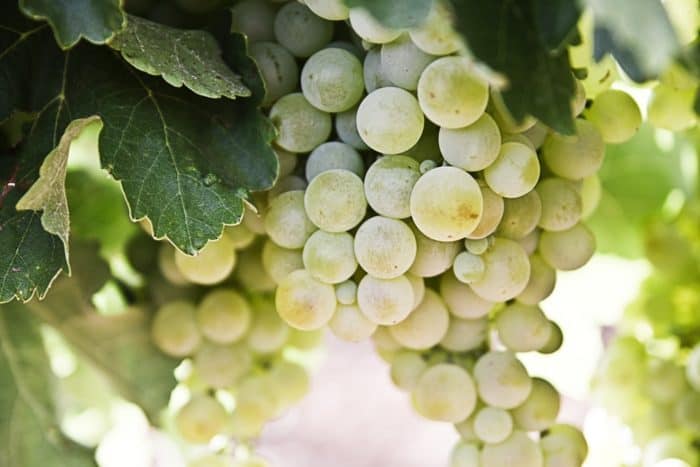
Step 2 – Grapes go into the crusher
This is more specific for red wine, as it's common practice to use the juice, skin, pulp and seed from red grapes in production.
White grapes, however, go straight to the presser, as they're only interested in the juice for white wine.
Step 3 – Grapes go into the presser
The job of the presser machine is to squeeze all of the pure juice from the grapes. Fairly straightforward.
Step 4 – Add yeast to the juice
The juice is transferred to large stainless steel fermentation tanks, where yeast is added to the grape juice.
Yeast is critical here, as it's the secret ingredient that turns the natural sugar from grapes into alcohol.
Winemakers experiment with different types of yeast to improve the quality of the wine.
Step 5 – Ferment the grape juice
The grape juice and yeast sit in harmony over some time for fermentation.
White wine is generally fermented for three weeks at 17 degrees Celsius.
Red wine is fermented for ten days between 30 and 35 degrees Celsius.
Rosé wine uses the juice from red grapes and is fermented for as long as white wine.
There is an extra step with red wine, though. The tank is drained, and wine is aerated. The oxygen helps the yeast to ferment faster. Once drained, the juice is put back into the tank.
Step 6 – Age the wine
Wine is stored for a few months in oak barrels.
Sugar levels are monitored as alcohol gradually increases to 11% for red wine and 11–11.5% for white wine and rosé.
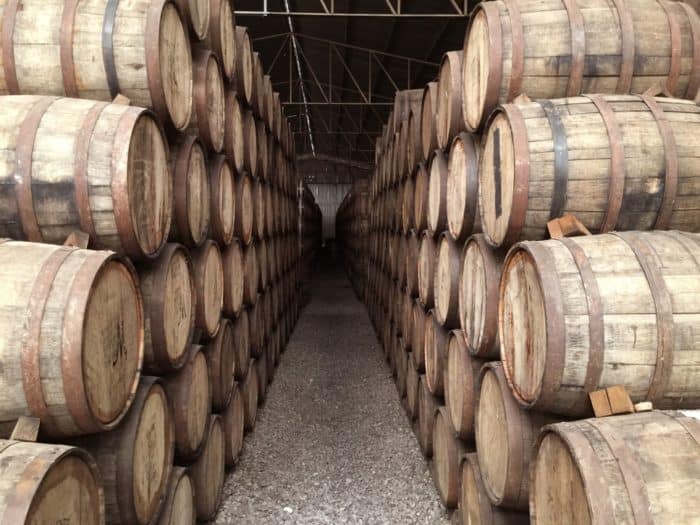
Step 7 – Filter the wine
Up until this point in the process, everything sounds clean and legit, right? We almost have a finished product, so it's hard to see how the wine wouldn't be vegan.
But this is where things get interesting.
In the barrel, you have aged wine ready for consumption. However, because the mix has been maturing for months, little particles such as tannin and proteins have developed in the wine, making the fluid cloudy and dare I say, a little chunky.
We can't have cloudy wine with potential physical particles floating around in it, so we need to filter the mix to make it as clear as possible.
Interestingly enough, wine can be filtered naturally, i.e. you do nothing but leave it. But it takes a long time to get to vintage wine level. And the economics of business pushes winemakers to get their products to their customers as quickly as possible. That's why winemakers intervene to speed up the process.
The filtering process is beyond me. It's straight science. But from what I can gather, you add products to the mix called clarifying (or fining) agents, which attract these little particles, then you filter out the wine leaving the agents and particles behind.
According to The Australian Wine Research Institute, there are eight commonly used fining agents.
- Gelatine (protein from boiling animal parts)
- Isinglass (fish bladder)
- Albumin (egg whites)
- Casein (a protein from milk)
- Skim milk (dairy product)
- Bentonite (clay)
- Carbon
- Polyvinylpolypyrrolidone (PVPP for short)
Winemakers use different clarifying agents for various reasons. Some agents are better suited for white wine, while others are better for red. Some agents are harder to work with than others, and so on.
Now at this point, you might be thinking, what's the big deal? At the end of the day, because of the magic of science, the filtered wine does not contain any animal product in it—so it's still vegan?
Well, yes and no.
Winemakers can't 100% guarantee that no gelatin, albumin, casein or milk snuck into your wine bottle.
Furthermore, the wine industry is massive, and a quick Google search reveals various suppliers that make these fining agents—create a micro-macro industry within itself.
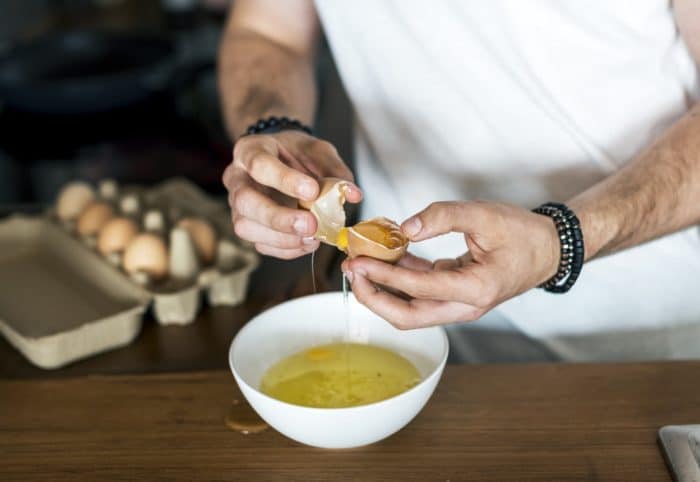
For example, Harris Vinclear is a fish bladder product that you can buy on eBay, amongst other resellers. This is a direct-to-consumer product that is readily available to anyone. There's very little information as to how Harris sources their fish bladders, but think about all of the underground suppliers to winemakers capitalising on this massive industry, exploiting millions of sea animals in the process.
On a positive note, I want to share a snippet from an article I found.
"Many winemakers are now using bentonite clay, and activated charcoal as filtration agents rather than animal-derived ingredients and some manufacturers are dismissing the filtration process altogether, in favour of allowing the process of clarification to occur naturally. Either way, it seems the availability of vegan wine is steadily on the rise!"
This is promising news as there are legitimate alternatives to animals products to help with clarifying the wine.
Anyway, let's finish the winemaking process for closure.
Step 8 – Bottle the wine
Once the wine has been filtered from the barrels, it's time for bottling.
Bottling and corking are usually performed by machines, to ensure that wine is airtight.
Then, of course, the wine continues to age on the shelf until it is opened and consumed.
Are there more steps to the wine-making process?
Okay, so from an afternoon of Googling, I've created an 8-step process for making wine. Of course, this is not 100% accurate. My goal is to give you an overview of the process.
It's interesting to see that the winemaking process is relatively straightforward. And using a vegan-friendly clarifying agent does not impact the taste or quality of the wine. It's purely a tool to get from step six to step eight.
This is an important point because if someone feels like wine will all of a sudden taste different because it's vegan-friendly, you now have the confidence to explain why that's not the case.
With companies like Goodwill Wine in Australia and Pull The Cork in the UK, you can make sure that all the wines that you purchase are 100% vegan. Both these brands have high ethics and care about what they do, and in my opinion, it's crucial to support more of these types of businesses.
Is beer vegan?
Initially, I was going to outline all of the steps for the beer-making process, but I was concerned with how long and repetitive this article would be.
So here's a link to an article that explains the process.
However, like wine, it's common practice to filter the beer to eliminate any particles. And like wine, the same clarifying agents are used.
The difference with beer, especially the craft beer movement, is that brewers are adding all sorts of ingredients to the barley, water, hops and yeast, to create different flavours.
This is where animal products can come into play. For sweeter beers, brewers might add honey. There are some beers with chocolate flavouring or even bacon!
So outside of the fining agents, there are some more variables to beer than there is for wine.
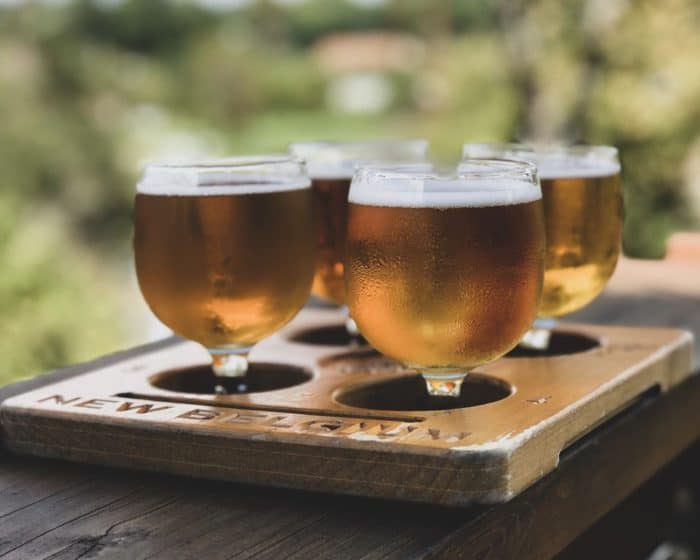
How to approach alcohol as a vegan?
Assuming you don't want to expand your home-based fermenting practice beyond Kombucha and try your hand at making your own wine, how do we better prepare ourselves as vegans when it comes to consuming alcohol?
It's no different to how you adjust your consumption habits for vegan food or fashion.
Find the go-to brands that you know and can trust.
This can at first seem limiting, but it's no different to how most people consume alcohol, vegan or not. I have friends that only by a specific type of branded beer because they like the taste.
So find your brands that are vegan-friendly and slowly expand over time, if you choose.
But what if you're in a social situation, where you don't have access to your favourite brand?
If you're super organised, and I know many of us have done this with food— you can always call ahead to see what the options are for drinks.
Whether it's a family barbecue, a work dinner, or a night club, you can always put in a bit of time to see what options are available in advance. You will likely need to do this anyway for food.
But instead of asking whether the drinks are vegan-friendly, ask what drinks are available. Then do your own screening.
Those of you reading this post have most likely heard of barnivore, which is an online directly of alcoholic beverages that give you information on whether a brand is vegan-friendly or not.
It's always a little awkward to pull out an app in a social environment, so best to do it in advance.
So what happens if you're in a spontaneous situation, and you're offered a drink?
Ultimately this decision is up to you. You could claim ignorance and run with the moment. Or you could politely decline. Or you could slightly damper the moment and do some quick research on your phone. Not always, some friends are more patient and forgiving than others.
Personally, after writing this post, I can understand that technically you could overlook some situations without totally compromising your values. However, I don't want any part in supporting the fining agent products that use animal ingredients.
A fining agent is a product, and therefore a business that has its own supply chain. And who knows how dodgy their supply chain is! I don't think I want to know, to be honest.
Better to err on the side of caution. At least that's my approach.
What would you do?
What's your approach to alcohol as a vegan, especially in unprepared moments? Do you think fining agents are a big deal? Would love to hear about your experience in the comments below.
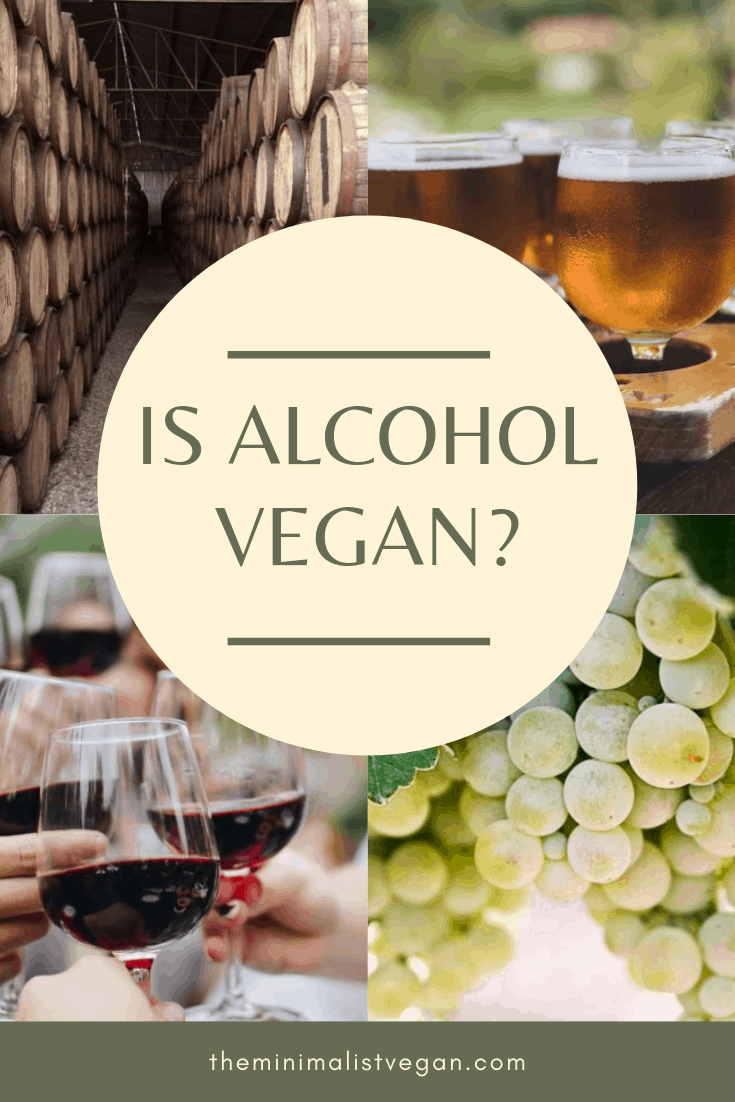
Other articles you'll love:
- Is Honey Vegan?
- What Is Vegan Leather?
- How To Go Vegan: A Guide On How To Transition To a Vegan Lifestyle
- Is Silk Vegan? The Answer Lies In The Process
- But Plants Have Feelings Too, Don't They?
Join the MV community
You'll get a neat summary of our content each week, as well as some behind the scenes of what's happening! See you on the inside 😉
Michael is an accomplished author, podcaster and a slightly above average cook. He's all about stripping back to the essentials to spend more time pursuing meaningful activities. You'll find him creating content about veganism, minimalism, productivity and sustainable living.
Can You Drink on Plant Based Diet
Source: https://theminimalistvegan.com/is-alcohol-vegan/